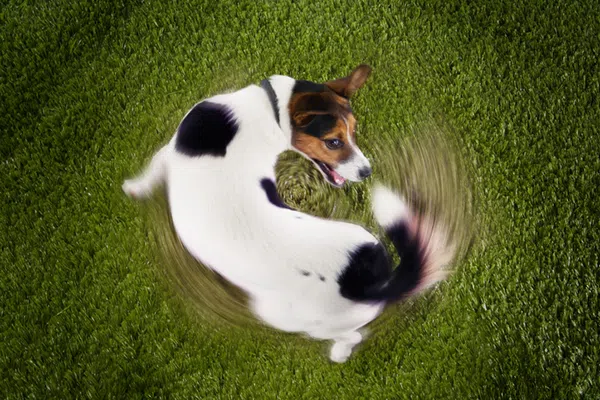
Dogs are known for their playful and sometimes quirky behavior, from chasing their tails to barking at the mailman. But can they also experience obsessive-compulsive disorders (OCD) like humans do? The short answer is yes. While it may not be as common as it is in humans, dogs can indeed have OCD. In fact, it is estimated that about 3% of dogs suffer from some form of OCD. Just like humans, this condition can affect their quality of life and requires proper understanding and treatment.
Can Dogs Be Obsessed?
The term “obsessive” may bring to mind images of dogs constantly licking themselves or chasing their tail, but the truth is, that OCD in dogs can manifest in various ways. Some dogs may develop a fixation on certain objects or behaviors, while others may exhibit repetitive behaviors such as pacing, spinning, or excessive grooming. These behaviors may seem harmless at first, but if left untreated, they can escalate and become a serious problem for both the dog and their owner.
The Secret World of Canine OCD
Just like in humans, the exact cause of OCD in dogs is not fully understood. Some experts believe that it could be a genetic predisposition, while others suggest that it could be triggered by a traumatic event or a stressful environment. In some cases, it could also be a result of boredom or lack of mental stimulation. Whatever the underlying cause may be, one thing is for sure – dogs with OCD experience uncontrollable urges and anxiety that can be disruptive to their daily routine.
Pawsitively Obsessive: What You Need to Know
It is important to note that OCD in dogs is not the same as the occasional odd behavior that most dogs display. For a dog to be diagnosed with OCD, the behavior must be repetitive, have no obvious purpose, and cause distress or impairment in their daily life. Some common forms of OCD in dogs include compulsive tail chasing, shadow or light chasing, and pica (eating non-food items). While these behaviors may seem amusing at first, they can lead to serious physical and psychological harm if not addressed.
From Fetch to Fixation: Understanding Doggy OCD
One of the biggest challenges in diagnosing OCD in dogs is that their behaviors can be easily mistaken for their natural instincts or normal play. For instance, a dog that obsessively fetches a ball may seem like they are just having fun, but in reality, they may be feeling anxious or stressed. It is crucial for dog owners to pay attention to the frequency and intensity of their dog’s behaviors, as well as any changes in their environment, to determine if it could be a sign of OCD.
Paw-possibly OCD: Spotting the Signs in Your Furry Friend
As a dog owner, it is important to be aware of the signs of OCD in your furry friend. Some common signs include excessive grooming or licking, repetitive behaviors, and anxiety or distress when the behavior is interrupted. If you notice any of these behaviors in your dog, it is best to consult with a veterinarian who can properly diagnose and treat your dog.
Helping Your Pup Shake Off OCD
While there is no cure for OCD in dogs, it can be managed with proper treatment and training. The first step is to consult with a veterinarian who can rule out any underlying medical conditions and prescribe medication if necessary. Behavior modification techniques, such as desensitization and counterconditioning, can also be used to help dogs overcome their compulsive behaviors. It is important to be patient and consistent in implementing these techniques, as it may take time for your dog to show improvement.
Dog owners play a crucial role in helping their furry friends overcome OCD. By understanding the signs, seeking proper treatment, and providing a loving and structured environment, we can help our dogs shake off their obsessive behaviors and live happier and healthier life. Remember, just like humans, dogs deserve proper care and attention when dealing with a mental health condition. Let’s continue to be the best pet parents we can be and provide our furry companions with the love and support they need.